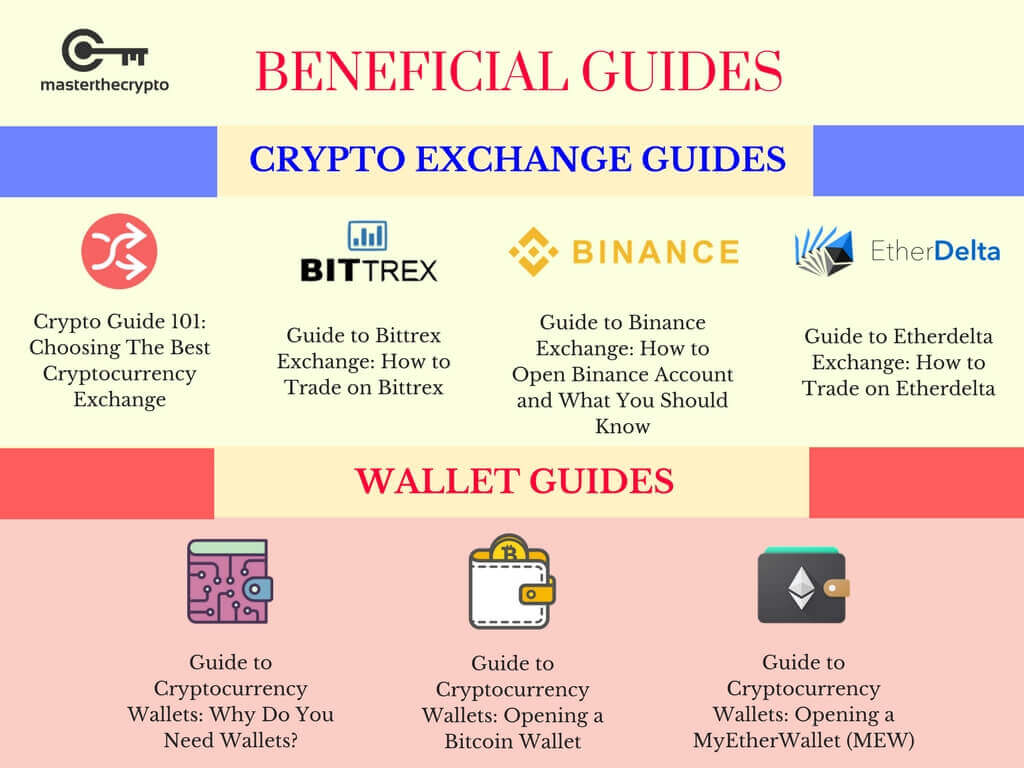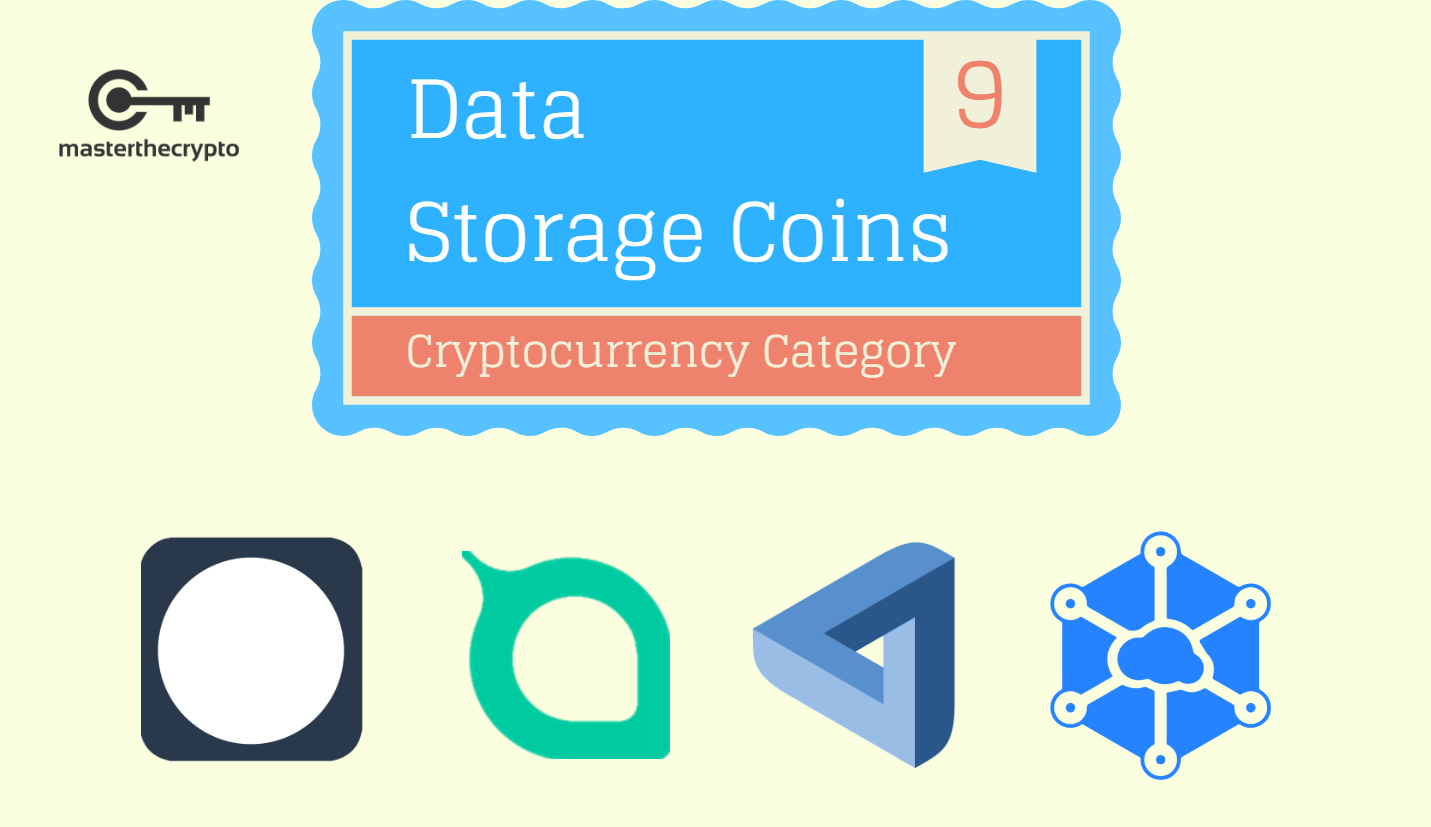This guide looks at the different category of cryptocurrency market, focusing on the ninth category which represents decentralized, data storage coins. This is the ninth part of the series that breaks down the crypto market into 12 major categories.
This article looks at the ninth category in the Top 100 of the cryptocurrency market, which features the different types of coins that are backed by a decentralized, data storage network.
Ninth Market Category: Decentralized Data Storage Coins
It is no surprise that traditional data storage is often handled by large companies like Facebook and Google that manage centralized servers capable of storing massive amount of data. There’s no denying that a centralized data storage architecture is extremely efficient. However, centralized databases are always vulnerable to network failure due to hacks or data breaches. A centralized system is prone to a single-point-of-failure attack which will compromise the entire network. With numerous high-profile data breaches suffered from giants like Facebook and Equifax, blockchain technology offers a transparent and secure architecture for data storage.
An open-source, decentralized data storage network makes loss of data almost impossible by distributing your files to numerous nodes (computers) that hold tiny pieces of your data. Many nodes maintain copies of the same file, which significantly reduces a single-point-of-failure scenario A distributed architecture makes the network much more secure.
Let’s take a look at the different coins that are focused on data storage:
(See also: Guide to Blockchain Protocols: Comparison of Major Protocol Coins)
Byteball (GBYTE)

Byteball is a decentralized data storage network built on Directed Acyclic Graphs (DAG), which uses a distributed technology that is different than blockchain technology. DAGs are much more scalable compared to traditional blockchains, using a liner structure that enables high-performance, fast transactions. Byteball offers immutable, tamper-proof data storage for any type of data. A unique feature of Byteball is its conditional payment structure that leverages on customizable smart contracts, which opens the door to an extensive array of use cases for businesses.
Additionally, Byteball facilitates the storage and transfer of a wide variety of asset class that include stocks, bonds and currencies. It is also worth mentioning that Byteball allows payments to be private and anonymous.
(Read more: Analyzing Cryptocurrency Risk: Existing Coins vs ICO)
Siacoin (SC)

Siacoin is an open-source cloud storage platform that is the decentralized version of legacy storage providers like Amazon, Dropbox and Microsoft. Siacoin is a peer-to-peer storage network that work by distributing encrypted files to thousands of users (clients) who get paid for renting out their disk space. Siacoin allows anyone to rent out their hard disk space and earn native tokens for their service. Transactions on the Sia ecosystem is secured by filing contracts (smart contracts that define the rules of engagement between the host and user) and storage proofs (cryptographic proof of stored data). In comparison to its centralized competitors, Sia is a much cheaper alternative and allows for a more secure network that can facilitate private transactions.
Sia works similar to Storj, with the main difference that Sia has its own native blockchain with smart contract functionalities.
(See also: Crypto Beginners Guide: 5 Things Crypto Newbies Should Know)
Maidsafecoin (MAID)

MaidSafe is a decentralized data management network that stands for Massive Array of Internet Disks, Secure Access for Everyone. Maid has a more generic focus of decentralizing the internet and uses a novel technology called Proof-of-Resource (POR), which allows transactions to be verified without the need to know the underlying data. Users in the Maid network are rewarded with native tokens by contributing computing resources – in the form of processing power, disk space and connectivity – to store chunks of encrypted data.
Maidsafe is one of the oldest cryptocurrency projects in the cryptocurrency market but progresses slower than the rest of its competitors.
(Read also: Guide to Market Capitalization: Everything You Need to Know About Market Cap)
Storj (STORJ)

Storj is a decentralized cloud storage network that is perhaps the leader in the space. Storj boasts a significant community of users (uploaders) and farmers (storage providers). The Storj network facilitate fast, cheap and private transactions suing sharding, where encrypted files are shredded into smaller pieces (called ‘shards’) and stored in a distributed manner across many nodes in the network. Shredding significantly increases the security of the network since no one node would have a complete copy of the entire data structure, since they are divided into smaller shards and distributed across the network.
Storj is now working towards a reputation-based system for storage providers (farmers) that will give priority to honest farmers.
(You might also be interested in: Guide to Cryptocurrency Liquidity: Understanding Liquidity & Its Importance)
Beneficial Resources To Get You Started
If you’re starting your journey into the complex world of cryptocurrencies, here’s a list of useful resources and guides that will get you on your way:

Trading& Exchange
- Crypto Guide 101: Choosing The Best Cryptocurrency Exchange
- Guide to Bittrex Exchange: How to Trade on Bittrex
- Guide to Binance Exchange: How to Open Binance Account and What You Should Know
- Guide to Etherdelta Exchange: How to Trade on Etherdelta
- Guide To Cryptocurrency Trading Basics: Introduction to Crypto Technical Analysis
- Cryptocurrency Trading: Understanding Cryptocurrency Trading Pairs & How it Works
- Crypto Trading Guide: 4 Common Pitfalls Every Crypto Trader Will Experience
Wallets
- Guide to Cryptocurrency Wallets: Why Do You Need Wallets?
- Guide to Cryptocurrency Wallets: Opening a Bitcoin Wallet
- Guide to Cryptocurrency Wallets: Opening a MyEtherWallet (MEW)
Read also: Crypto Trading Guide: 4 Common Pitfalls Every Crypto Trader Will Experience and Guide To Cryptocurrency Trading Basics: Introduction to Crypto Technical Analysis.
Get our exclusive e-book which will guide you on the step-by-step process to get started with making money via Cryptocurrency investments!
You can also join our Facebook group at Master The Crypto: Advanced Cryptocurrency Knowledge to ask any questions regarding cryptos!
I’m Aziz, a seasoned cryptocurrency trader who’s really passionate about 2 things; #1) the awesome-revolutionary blockchain technology underlying crypto and #2) helping make bitcoin great ‘again’!
The post Category of Cryptocurrency Market: Decentralized Data Storage Coins appeared first on Master The Crypto.























